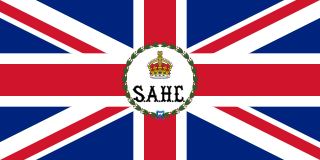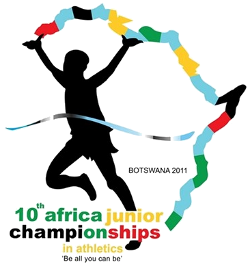Related Research Articles
The Batswana, a term also used to denote all citizens of Botswana, refers to the country's major ethnic group. Prior to European contact, the Batswana lived as herders and farmers under tribal rule.

Eswatini, formally the Kingdom of Eswatini and formerly named Swaziland, is a landlocked country in Southern Africa. It is bordered by Mozambique to its northeast and South Africa to its north, west, south, and southeast. At no more than 200 km (120 mi) north to south and 130 km (81 mi) east to west, Eswatini is one of the smallest countries in Africa; despite this, its climate and topography are diverse, ranging from a cool and mountainous highveld to a hot and dry lowveld.

The University of Botswana (UB) was established in 1982 as the first institution of higher education in Botswana. The university has three campuses: one in the capital city Gaborone, one in Francistown, and another in Maun. The university is divided into six faculties: Business, Education, Engineering, Humanities, Health Sciences, Science and Social Sciences and the Sir Ketumile Masire Teaching Hospital.

The Southern African Development Coordination Conference (SADCC), the forerunner of the Southern African Development Community (SADC), was a memorandum of understanding on common economic development signed in Lusaka, Zambia, on 1 April 1980. It is formalised as the Lusaka Declaration ratified by the nine signing states. Some of the main goals for the Member States were to be less dependent on apartheid South Africa and to introduce programmes and projects which would influence the Southern African countries and whole region.

The University of Eswatini is the national university of Eswatini.

Limkokwing University of Creative Technology is a private university that has a presence across Africa, Europe, and Asia. With its main campus in Malaysia, the university has over 30,000 students from more than 150 countries.

The British office of high commissioner for Southern Africa was responsible for governing British possessions in Southern Africa, latterly the protectorates of Basutoland, the Bechuanaland Protectorate and Swaziland, as well as for relations with autonomous governments in the area.
Luyengo is a town in western Eswatini. It is located 35 kilometres south of the capital, Mbabane, on the MR18 highway, at the junction of the road south to Mankayane and Mgazini.
Education in Eswatini includes pre-school, primary, secondary and high schools, for general education and training (GET), and universities and colleges at tertiary level.

Eswatini–South Africa relations refers to the current and historical relationship between Eswatini and South Africa. South Africa surrounds Eswatini on the north, west and south. The two states share strong historical and cultural ties. Mutual High Commissions were established in Pretoria and Mbabane at the end of the apartheid era in 1994. Eswatini's High Commission in Pretoria is also cross-accredited to Botswana, Lesotho, Namibia, Zambia and Zimbabwe.

The 2011 African Junior Athletics Championships were held at the University of Botswana Stadium in Gaborone, Botswana from 12 to 15 May. It was the tenth edition of the continental athletics tournament for African athletes aged 19 years or younger. Over 700 athletes from 28 countries announced their desire to participate in the event over four days of track and field competitions, which featured 22 events from men and 22 events for women.

Donald Richard Norland was an American diplomat. He was the United States Ambassador to Botswana, Swaziland, Lesotho, and Chad.
The University of Botswana, Lesotho and Swaziland (UBLS) was a predecessor to the universities of the respective countries, presently National University of Lesotho, University of Botswana and University of Eswatini. The University was formerly known as the University of Basutoland, Bechuanaland and Swaziland (UBBS), which had its headquarters in Lesotho between 1964 and 1975. The UBBS had developed from the Pius XII Catholic University College at Roma, which was the product of a long-held desire of the Roman Catholic hierarchy in Southern Africa for an institution of higher learning for Africans.

Letshego Holdings Limited is a microfinance holding company with its headquarters in Gaborone, Botswana and is listed on the Botswana Stock Exchange (BSE). Letshego is a Setswana word meaning “Support”.

The Botswana women's national cricket team represents the country of Botswana in women's cricket matches. The team is currently coached by Karabo Motlhanka.
The Botswana national football team represents Botswana in international football under the control of the Botswana Football Association. Following the independence of Botswana in 1966, the football federation was founded in 1970. It later joined joined the Confederation of African Football (CAF) in 1976 and FIFA in 1982.
References
- ↑ "History - University of Swaziland". Uniswa.sz. Retrieved 19 August 2017.